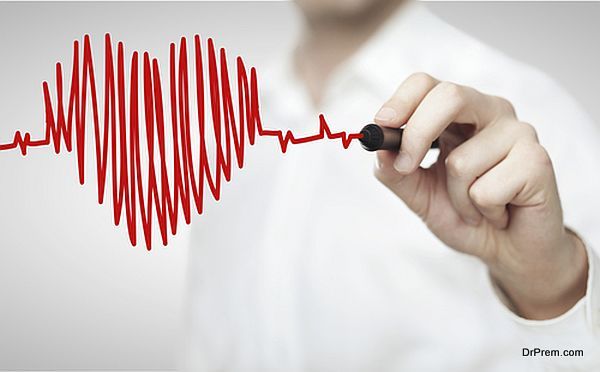At Interventional Cardiology Conference, researchers presented trial data that showed advances in techniques to evidence-based research. It further shed a light on previously unknown aspects of heart health that could play key roles in diagnosing and treating various health conditions.
Here are five aspects of heart health that are presently being studied, which could change how medical professionals treat heart disease in the future. And even how you go about your day.
Saunas are good for your heart health
The University of Eastern Finland found that frequent visits to the sauna keeps one’s blood pressure at an even keel. In fact, from their wide amount of research, they discovered the risk of high blood pressure was 50 percent lower in men who visited a sauna 4 to 7 times a week.
Having high blood pressure is a known risk factor for cardiovascular disease. If your next blood pressure reading has you worried, try adding a sauna trip to your weekly schedule. It will relax you, as well as be good for your heart.
Another reason not to skip breakfast
Is breakfast the meal of the day you skip most often? According to the NPD Group, one out of ten Americans skip their morning repast. But recent research that appeared in the Journal of American College of Cardiology might make you rethink your eating habits. Their research showed that skipping breakfast is correlated with a higher risk of hardened arteries. The medical term is atherosclerosis. And this condition was found in greater number among those surveyed who regularly skip breakfast.
It was also noted in the research that those who skip the first meal of the day typically had other unhealthy habits. For example, drank alcohol, smoked, and were also overweight or obese.
Inflammation’s role in heart disease
Experts have long believed that lowering one’s inflammation levels could reduce the risk of heart disease. And now they have evidence to prove it.
While the research has not been effective on everyone, it was effective for those who have had a heart attack in their history, and were at risk of a second one. Participants were given a drug, canakinumab, that targets a specific type of inflammation. The study lasted for 3 to 4 years. Those who received the highest drug dose were the least likely to have another heart attack. Another good side effect of lowering inflammation? Those who took the drug also had lower rates of developing cancer, arthritis, and gout.
This research will not mean immediate treatments for all using this inflammation-lowering drug. But it will open up the dialogue as to the role inflammation plays in treating those at high risk of heart disease. Furthermore, it will provide another avenue to those at high risk of heart disease to ensure perfect heart health.
Screening program for heart disease saves lives
The European Society of Cardiology published an account of a unique screening program that saves 1 life for every 169 men who are screened.
The study took place in Denmark and assessed 156 men, aged 65 to 74. Half were given a typical medical evaluation, and the other half had their aorta scanned for abdominal aortic aneurysm and peripheral artery disease. More than 20 percent of those in the screening group had results that showed a high risk of heart disease.
The cost of providing this screening, using ultrasonography was an added 148 euros per person. Which is cheap when compared to the number of lives that could be saved through screening. This program is already showing great promise in the prevention of heart attacks.
Cells that repair damaged heart cells
In research published in August 2017, researchers stated the discovery of the “Singheart” molecule. Singheart appears to trigger regeneration and repair in damaged heart cells.
The molecule is a non coding ribonucleic acid that regulates genes that control the ability of heart cells to repair or regenerate. Most organs in the human body have the ability to self-heal. For example, if a person gets a cut, the cut will eventually scab over and repair itself. The heart, however, does not have this ability. The discovery of a molecule that could unlock the brakes that prevent a heart from self-healing might be a game-changer. Research is still in its early stages, but in the future, this molecule should enable doctors to treat catastrophic heart events and ensure perfect heart health.
Article Submitted by Community Writer.




